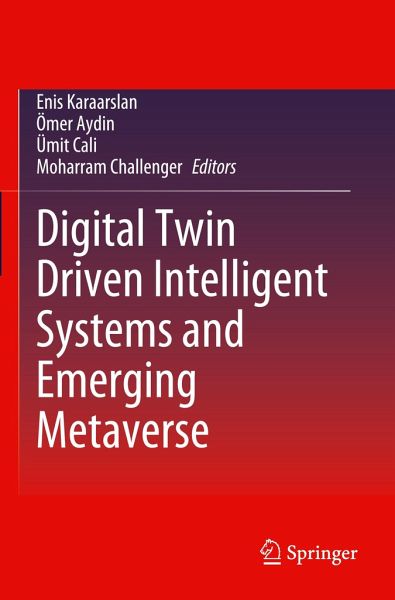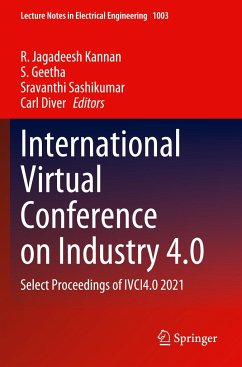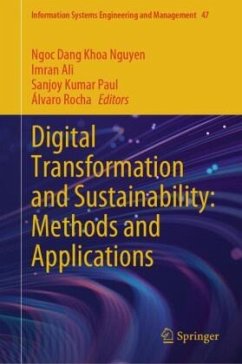
Digital Twin Driven Intelligent Systems and Emerging Metaverse
Versandkostenfrei!
Versandfertig in 6-10 Tagen
129,99 €
inkl. MwSt.

PAYBACK Punkte
65 °P sammeln!
This book covers the notion of the digital twin, which has the potential to alter the way systems are governed and manufactured. It also addresses the metaverse as an emerging technology with its roots in literature, cross-platform avatars, and artificial intelligence-oriented cybersecurity issues. The untapped potential of the metaverse and digital twins as enabling technologies for the next-generation industries is emphasized in various chapters.Digital twin technology enables manufacturers to comprehend their products throughout product design better, integrate simulation, tracking, and opt...
This book covers the notion of the digital twin, which has the potential to alter the way systems are governed and manufactured. It also addresses the metaverse as an emerging technology with its roots in literature, cross-platform avatars, and artificial intelligence-oriented cybersecurity issues. The untapped potential of the metaverse and digital twins as enabling technologies for the next-generation industries is emphasized in various chapters.
Digital twin technology enables manufacturers to comprehend their products throughout product design better, integrate simulation, tracking, and optimization in real-time, and appropriately analyze operations. Especially for complicated products or systems, testing on a digital twin is more efficient (more accessible, quicker, less error-prone, and less expensive). The product is examined in its virtual version before it is displayed in the actual world. Additionally, the digital twin minimizes operational expensesand increases the longevity of equipment and assets. By prolonging the life of the thing, they represent and enhance its working efficiency; it may minimize operating costs and prospective capital spending. The digital twin idea is becoming a reality as it has begun to be used in several industries, including energy, manufacturing, construction, transportation, aerospace, smart cities, healthcare, cyber security, finance, and agriculture. Academic and industrial experts highlighted the most compelling use cases of digital twins and metaverses and the challenges inherent in their implementation. Readers who want to make more effective systems will find the book useful. Also, people who want to get an idea and vision of how technology will change our lives will benefit from this book.
Digital twin technology enables manufacturers to comprehend their products throughout product design better, integrate simulation, tracking, and optimization in real-time, and appropriately analyze operations. Especially for complicated products or systems, testing on a digital twin is more efficient (more accessible, quicker, less error-prone, and less expensive). The product is examined in its virtual version before it is displayed in the actual world. Additionally, the digital twin minimizes operational expensesand increases the longevity of equipment and assets. By prolonging the life of the thing, they represent and enhance its working efficiency; it may minimize operating costs and prospective capital spending. The digital twin idea is becoming a reality as it has begun to be used in several industries, including energy, manufacturing, construction, transportation, aerospace, smart cities, healthcare, cyber security, finance, and agriculture. Academic and industrial experts highlighted the most compelling use cases of digital twins and metaverses and the challenges inherent in their implementation. Readers who want to make more effective systems will find the book useful. Also, people who want to get an idea and vision of how technology will change our lives will benefit from this book.












